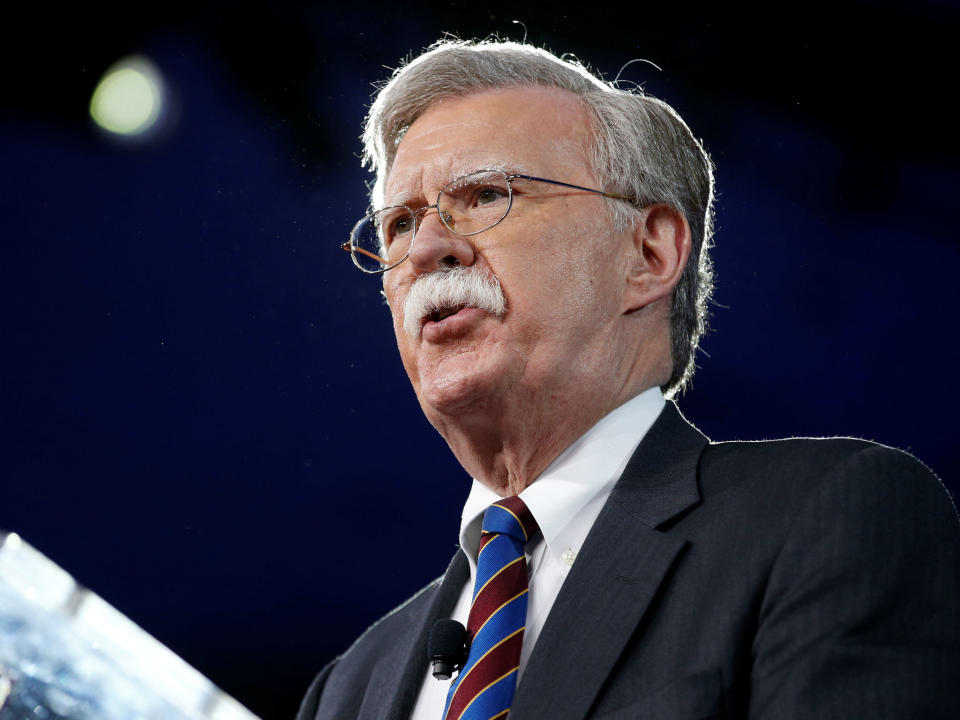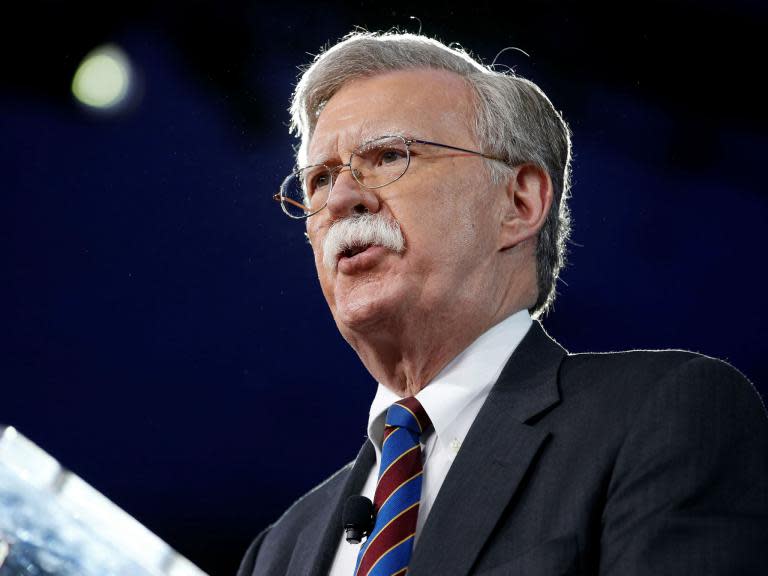John Bolton: What does Donald Trump's new national security adviser believe about North Korea, Iran and the UN?
Donald Trump has replaced HR McMaster, his national security adviser, with noted foreign policy hawk John Bolton.
The man who kept a defused hand grenade on his desk at the State Department during the administration of former Republican President George W Bush is known for his strong stances on Iran, North Korea, the UN, European governments and international treaties.
His appointment led one Democratic senator – Jack Reed, the ranking member of the US Senate’s armed services committee – to warn that “Mr Bolton does not have the temperament or judgement to be an effective national security adviser”.
But after news of his appointment broke, the 69-year-old told Fox News: “Frankly, what I have said in private now is behind me".
Below, a look back at Mr Bolton’s thoughts on a number of topics.
On North Korea
“We have a very limited amount of time left before NorthKorea gains deliverable nuclear weapons. We’ve got to look at the very unattractive choice of using military force to deny them that capability,” Mr Bolton tweeted in January.
He has made a number of statements advocating a first-strike policy and described Mr Trump’s plan to meet North Korean leader Kim Jong-un as “diplomatic shock and awe”
He said it would be an opportunity to deliver a threat of military action.
“I think this session between the two leaders could well be a fairly brief session where Trump says, ‘Tell me you have begun total denuclearisation, because we’re not going to have protracted negotiations. You can tell me right now or we’ll start thinking of something else’,” he told Washington’s WMAL radio station.
In 2003 as undersecretary of state Mr Bolton called former North Korean leader and Mr Kim's father, Kim Jong-il, a “tyrannical dictator”, while describing life in the secretive communist state as a “hellish nightmare”.
For its part, Pyongyang retorted that Mr Bolton, later US Ambassador to the United Nations (UN), was “a human scum and bloodsucker”.
On Iran
In a 2015 New York Times column entitled, “To Stop Iran’s Bomb, Bomb Iran”, Mr Bolton argued: “The inconvenient truth is that only military action like Israel’s 1981 attack on Saddam Hussein’s Osirak reactor in Iraq or its 2007 destruction of a Syrian reactor, designed and built by North Korea, can accomplish what is required. Time is terribly short, but a strike can still succeed.”
He has also described the deal as "the worst act of appeasement in American history" and last year he tweeted: “Iran can sign multiple agreements, but the fact is, they’re not going to stop until they reach the nuclear capability that North Korea has.”
On the UN
In 1994, Mr Bolton said in a speech at the the Global Structures Convocation in New York: ”There is no United Nations. There is an international community that occasionally can be led by the only real power left in the world, and that’s the United States, when it suits our interests and when we can get others to go along.”
And, asked in 2013 what his greatest lesson had been from his time as ambassador, Mr Bolton told an interviewer at the American Enterprise Institute: “America has to defend its own interests in the United Nations, because you can be sure no one else will.
“Acting like a well-bred doormat gets us nothing but more pressure to conform in an environment that it is often far from conducive to our values and interests. That can be done politely and graciously, but we should never confuse being friendly with making substantive concessions.”
On Russia
In 2016 Mr Bolton appeared to suggest the Russian hack of Democratic emails during the presidential campaign may have been a “false flag” operation conducted by Americans.
He has nonetheless been a strident in his criticism of Vladimir Putin’s actions in Syria and of the nerve agent attack in the UK.
And this week he tweeted: “The recent Russian presidential election was a chance for #Putin to practice election meddling on his own elections so he can do it better elsewhere. We need a long term strategy to deal with countries like #Russia and #China with long standing rulers.”
Additional reporting by agencies

 Yahoo News
Yahoo News 

